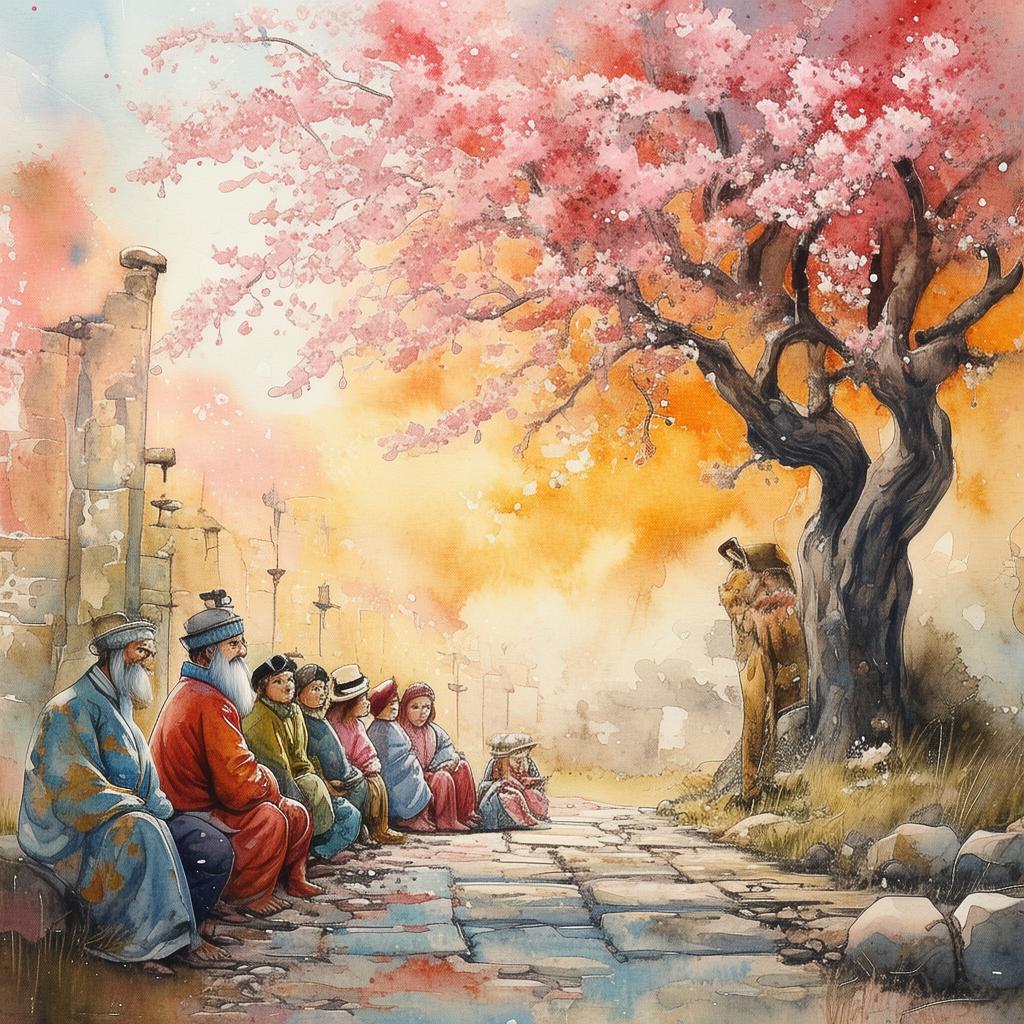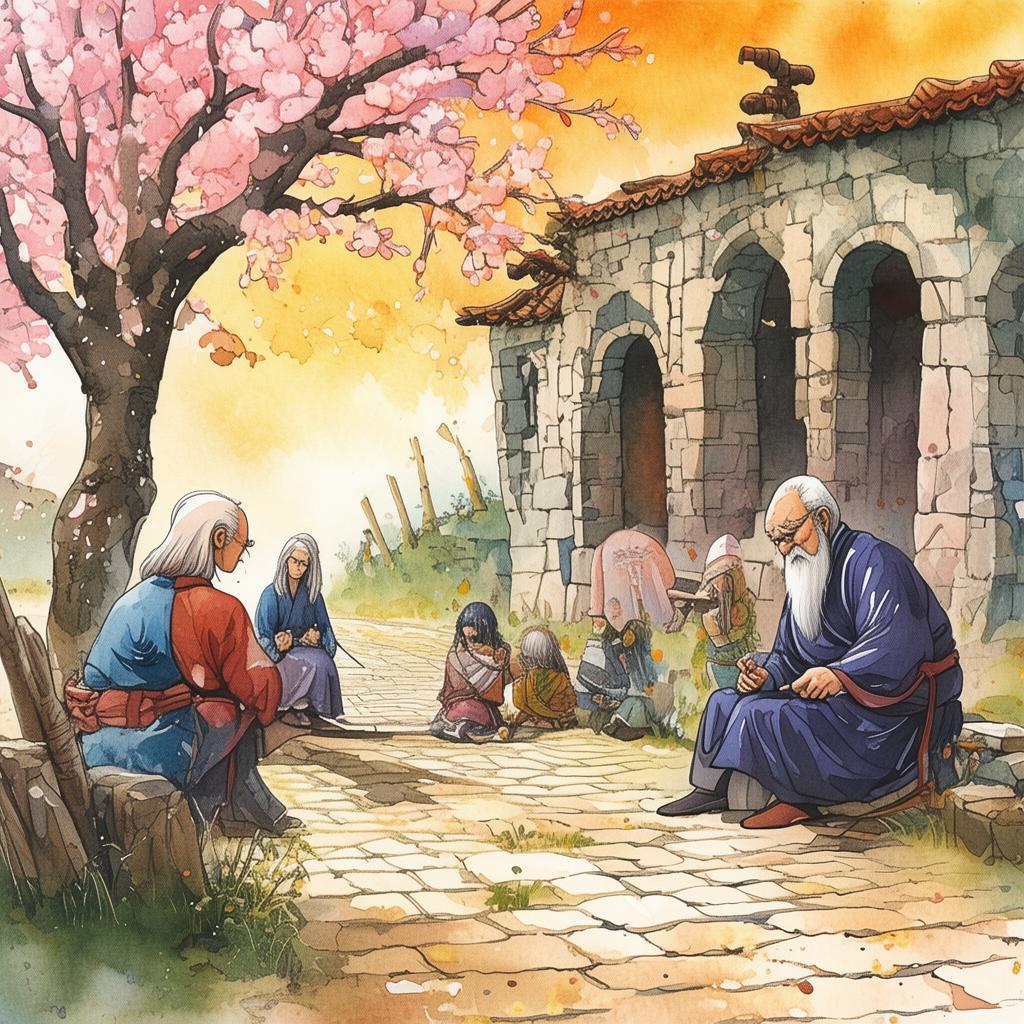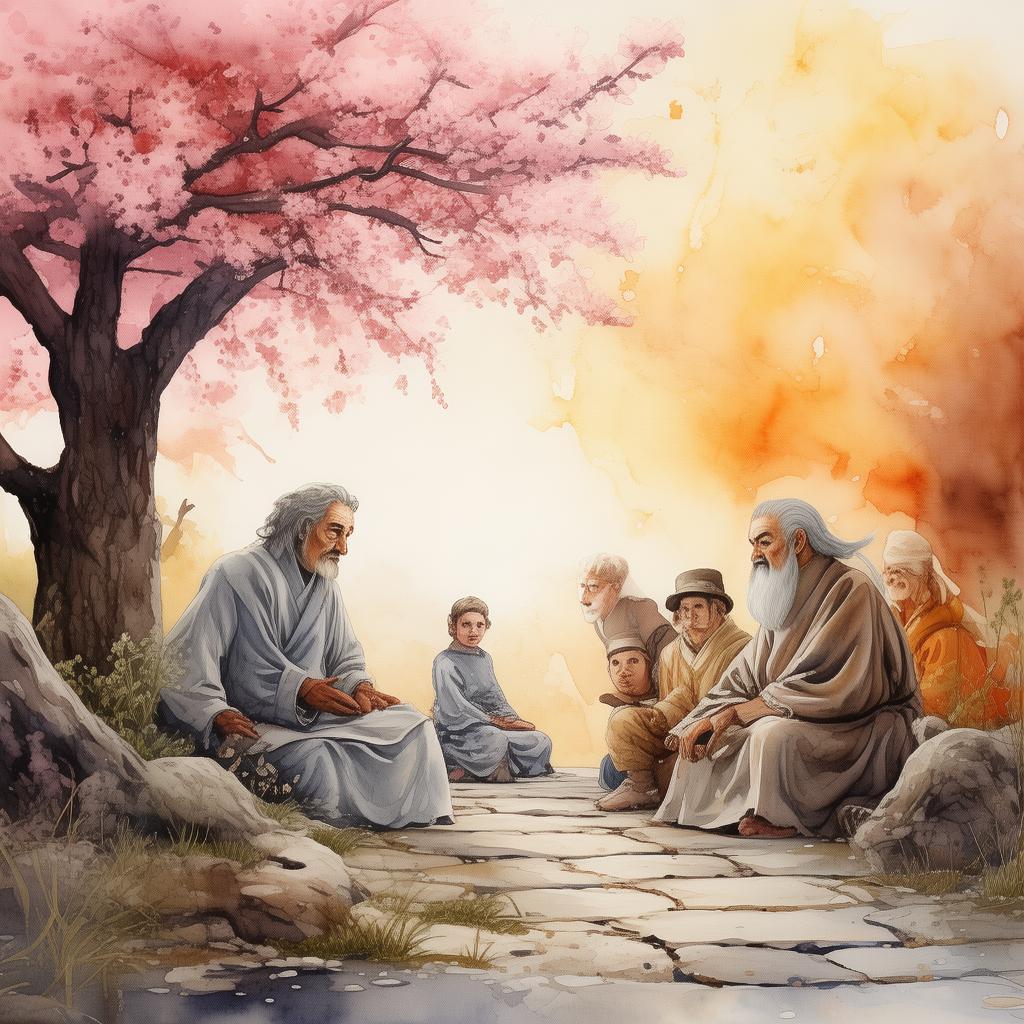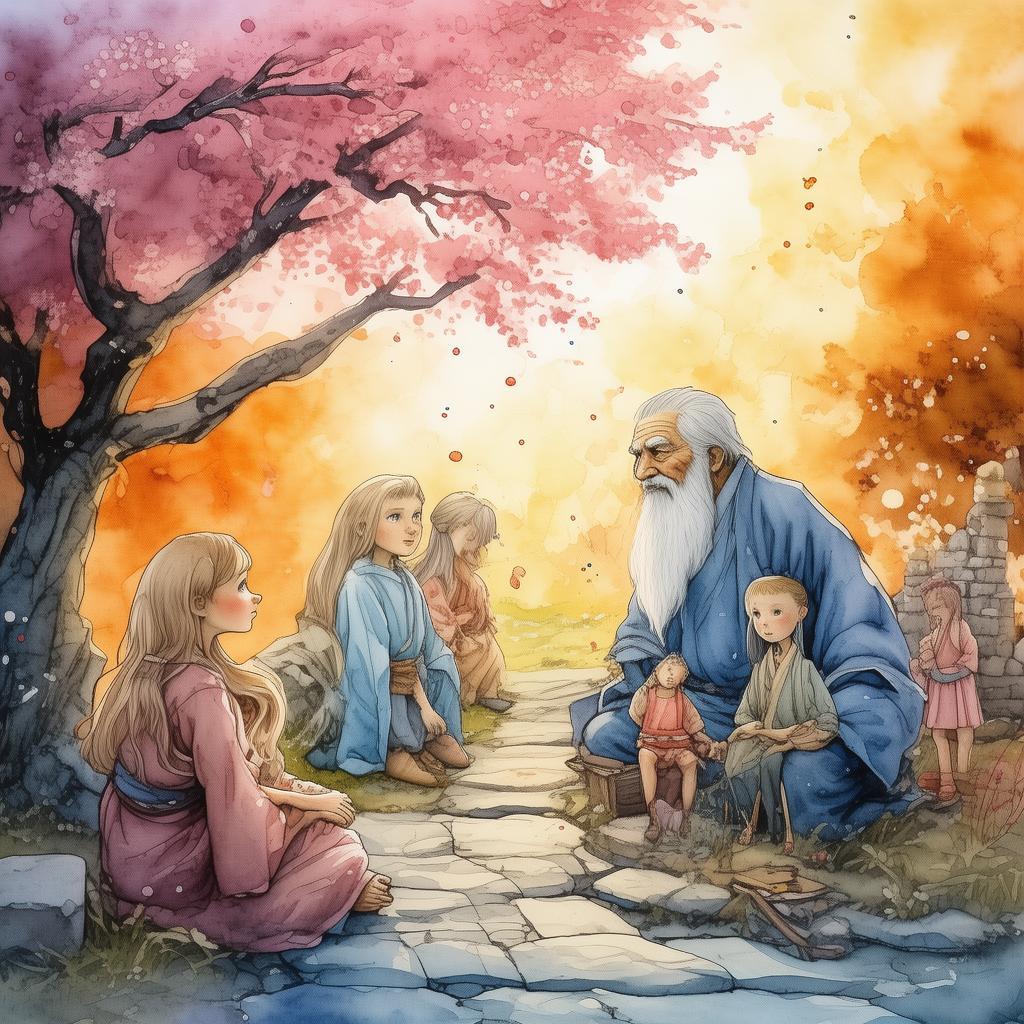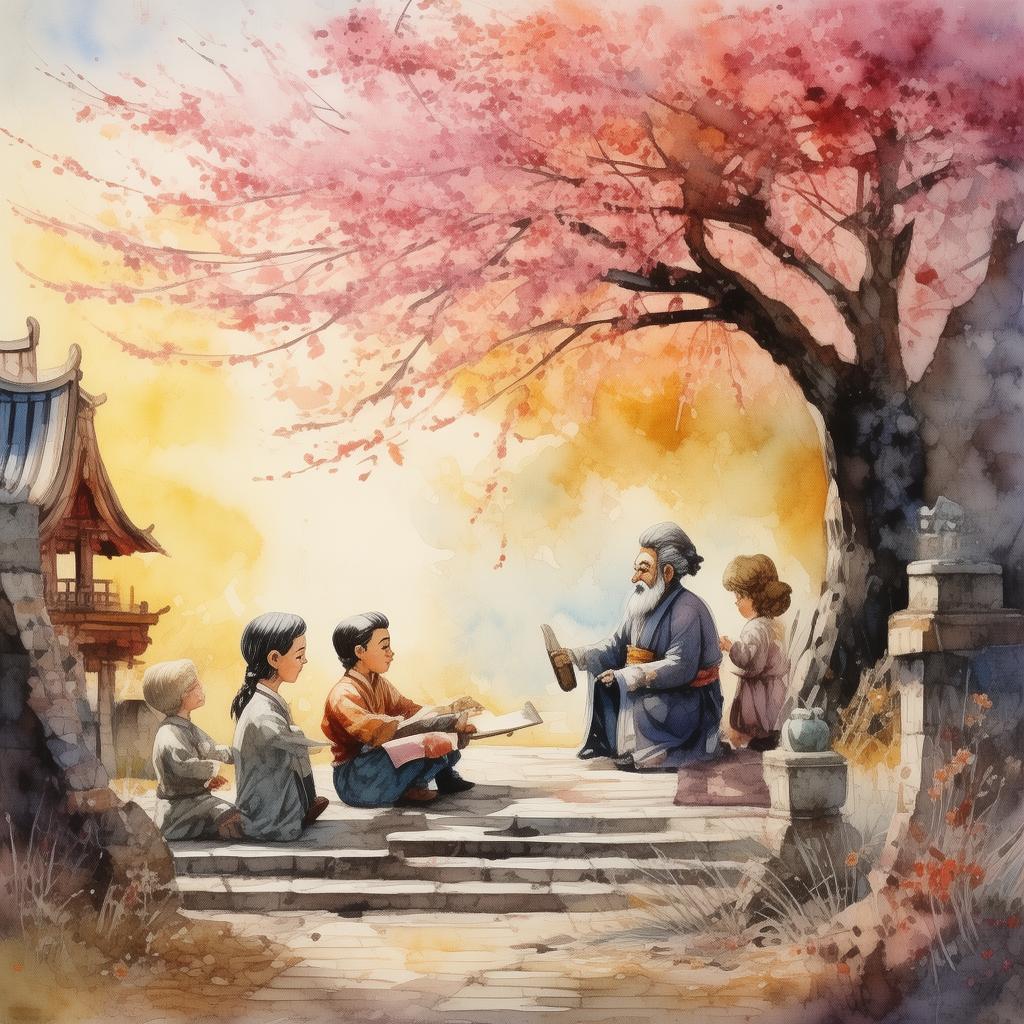The Altruistic Abyss: The Paradox of the Wealthy Poor
In the bustling metropolis of Jinghu, there lived a man named Feng Ming, who was known for his vast wealth but modest lifestyle. Feng Ming was not just a philanthropist; he was a paradox. He owned a string of successful businesses, yet he lived in a modest apartment, drove an old car, and dressed in simple clothes. People often speculated about where his money went, but Feng Ming remained enigmatic.
One day, a devastating earthquake struck a remote village nestled in the mountains. The news of the calamity spread quickly, and the public was moved by the plight of the villagers. Feng Ming, known for his generosity, was among the first to offer aid. He donated a substantial amount to the relief efforts, and his name was prominently featured in the media as a symbol of hope.
However, as the weeks passed, the stories of the earthquake's aftermath began to change. It became apparent that the aid was not reaching the intended recipients. The village leaders, corrupted by greed, were using the donations for their own gain. The villagers were left to suffer, their homes in ruins, and their livelihoods destroyed.
Feng Ming was appalled. He decided to visit the village himself to oversee the distribution of aid. As he traveled deeper into the mountains, he encountered a young woman named Liang Hua, who had lost her family in the earthquake. Desperate and destitute, she was selling her only possession, a family heirloom, to buy food.
Feng Ming was moved by her plight. He offered to buy the heirloom, but Liang Hua refused. "This is the only thing I have left of my family," she said, her eyes brimming with tears. "It's worth more to me than any money you could give."
Feng Ming pondered the situation. He knew that if he continued to distribute aid, he risked falling into the same trap as the corrupt village leaders. But if he stopped, the villagers would suffer even more. He was caught in a moral quagmire, and the weight of his decision pressed heavily on his shoulders.
One evening, as Feng Ming sat by the campfire, he reflected on his life. He had always believed in the power of charity and the importance of helping others. Yet, he was now faced with a dilemma that threatened to shatter his beliefs.
Suddenly, a group of villagers approached him, led by the village leader. "Feng Ming, we are grateful for your aid," the leader said with a sly grin. "But we need more. We need you to provide shelter for our families, and we need you to invest in our village's reconstruction."
Feng Ming knew what was at stake. If he agreed, he would be entangled in the same web of corruption. But if he refused, the villagers would continue to suffer. He stood up, his eyes burning with determination. "I will provide shelter and reconstruction," he announced. "But I will do it under one condition."
The villagers looked at each other, confused. "What is your condition?" the leader asked.
Feng Ming turned to Liang Hua. "I will rebuild your village, but you must promise to use the aid transparently and for the benefit of all villagers. No corruption, no favoritism."

Liang Hua nodded, tears streaming down her face. "I promise," she said. "We will not let you down."
With that, Feng Ming set out to rebuild the village. He established a new system of governance, ensuring that the aid was distributed fairly and efficiently. The villagers, inspired by his example, worked tirelessly to rebuild their homes and their lives.
As the village began to flourish, Feng Ming realized that the true wealth was not in his possessions but in the lives he had touched. The paradox of the wealthy poor was no longer a conundrum; it was a testament to the power of selflessness and the enduring strength of the human spirit.
The Altruistic Abyss: The Paradox of the Wealthy Poor is a story of moral courage and the struggle between compassion and corruption. It explores the depths of human nature and the complexities of charity, leaving readers to ponder the true meaning of wealth and the essence of altruism.
✨ Original Statement ✨
All articles published on this website (including but not limited to text, images, videos, and other content) are original or authorized for reposting and are protected by relevant laws. Without the explicit written permission of this website, no individual or organization may copy, modify, repost, or use the content for commercial purposes.
If you need to quote or cooperate, please contact this site for authorization. We reserve the right to pursue legal responsibility for any unauthorized use.
Hereby declared.





